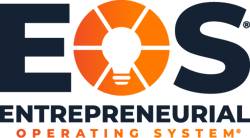Something that is surprisingly difficult in business is having a true functioning team. In his book The Advantage, Patrick Lencioni articulates four disciplines that are necessary to achieve organizational health. Discipline 1 is to build a cohesive leadership team. He poses the question of whether a group of leaders is a "team" or a "working group."
You may ask, what's the difference?
Teams Vs. Working Groups in Business Leadership
A team is like a basketball team. It's a group of people that "play together simultaneously, in an interactive, mutually dependent, and often interchangeable way."
A working group is like a golf team where "players go off and play on their own and get together and add up their scores at the end of the day."
As I work with companies that commit to making the journey to implement EOS and become strong in the Six Key Components (Vision, People, Data, Issues, Process, & Traction) of EOS, I see teams develop in two ways:
- If there is a true team in place, I see it become stronger.
- If the team is really a working group, I see it become a team.
Becoming a Stronger Team
The tools in EOS help teams build trust, eliminate politics, and increase efficiency because they:
- Help build trust and appreciate each team member's strengths and weaknesses, through the use of "trust builder" tools
- Teach teams how to openly engage in conflict for the greater good of the organization as they Identify, Discuss and Solve issues
- Provide a methodology to hold one another accountable to their Rocks, To-dos, Core Values, and Roles related to their fuction
Does your team appreciate each other, openly engage in constructive conflict and hold each other accountable? If not, you might have a working group.
Next Steps
- Share this post with your network or add your comment below!
- Download a free chapter of Traction by EOS founder Gino Wickman
- Request a free 90-Minute Meeting with an EOS Implementer to get a clear picture of what it looks like to run your company on EOS.




